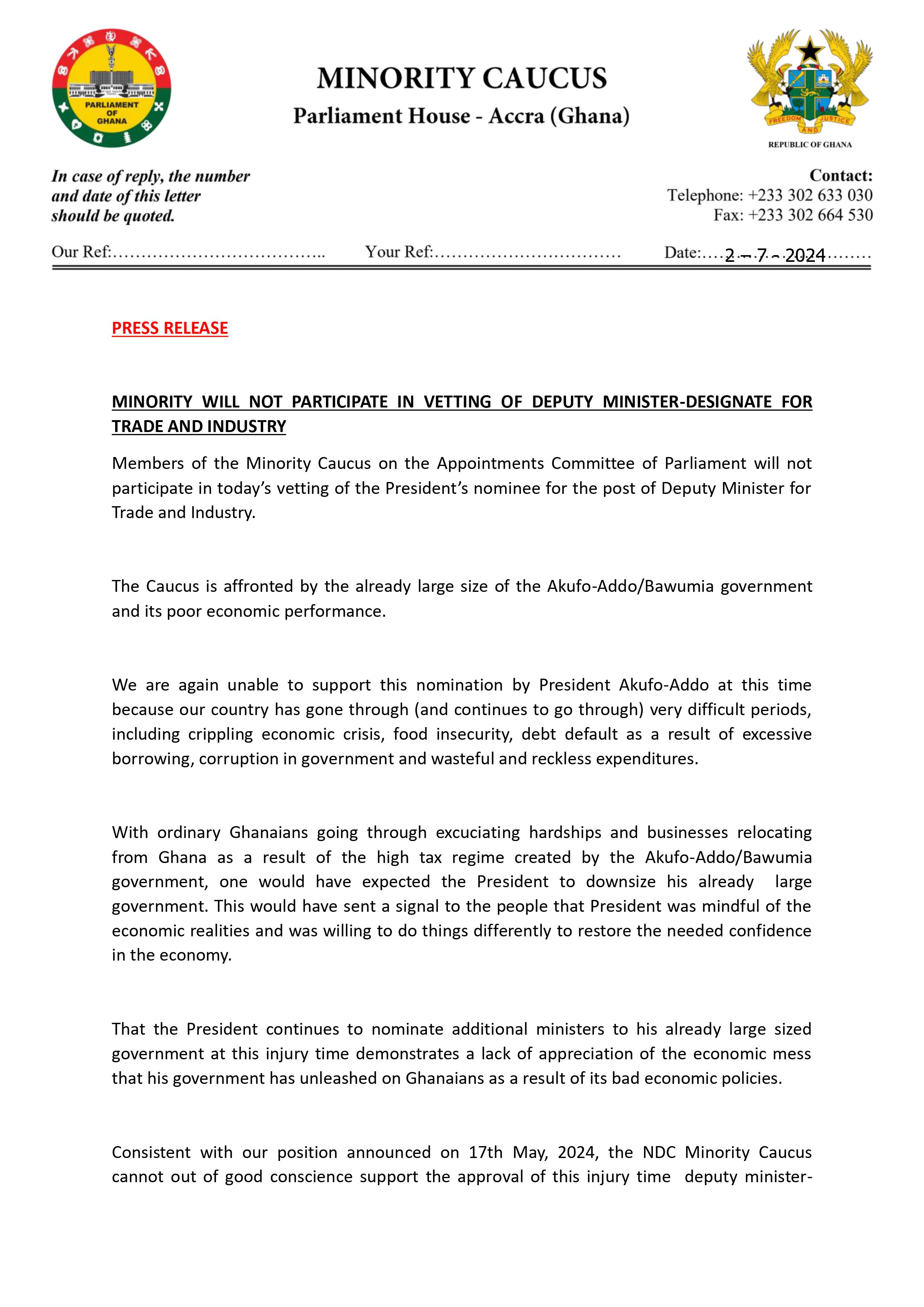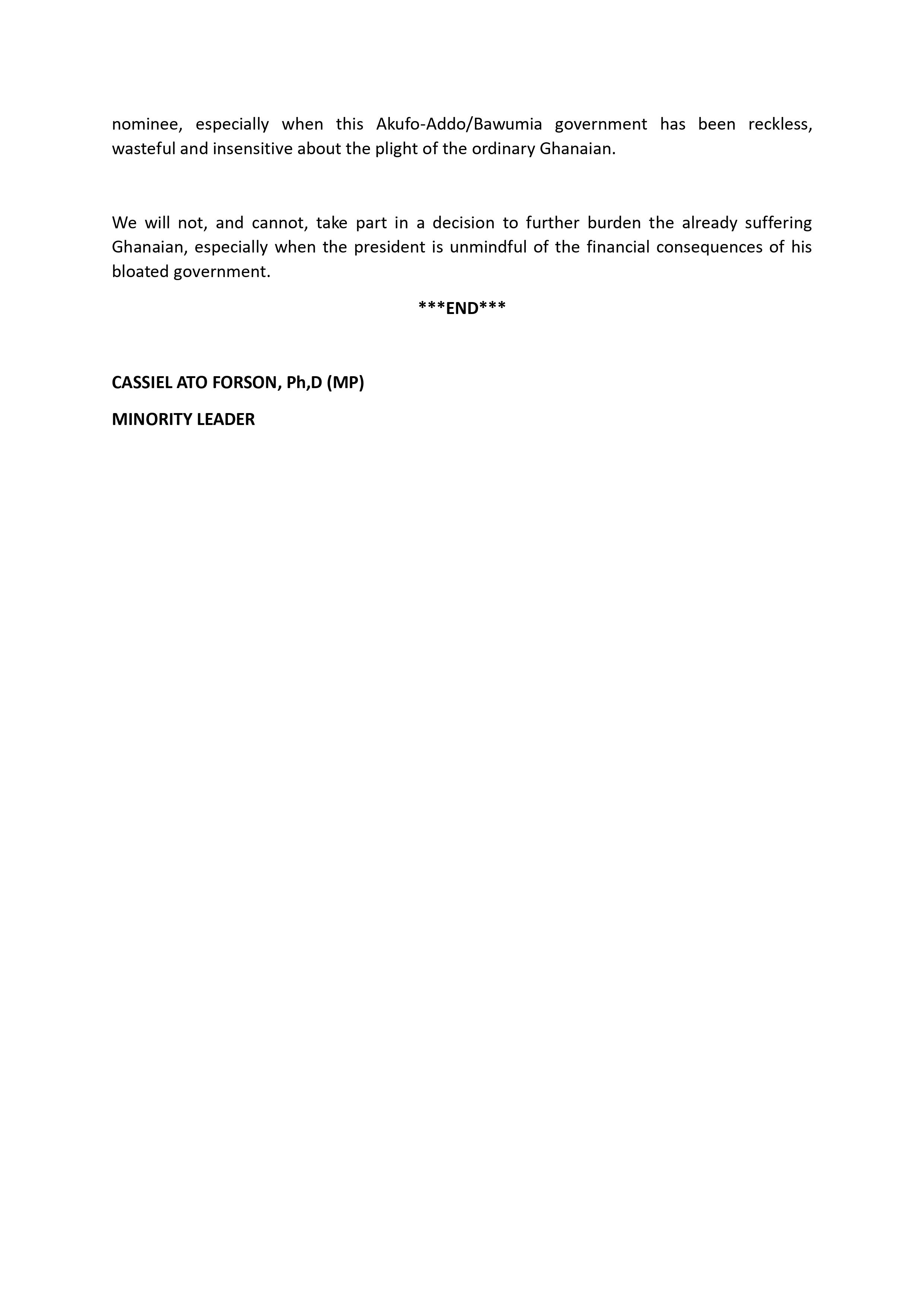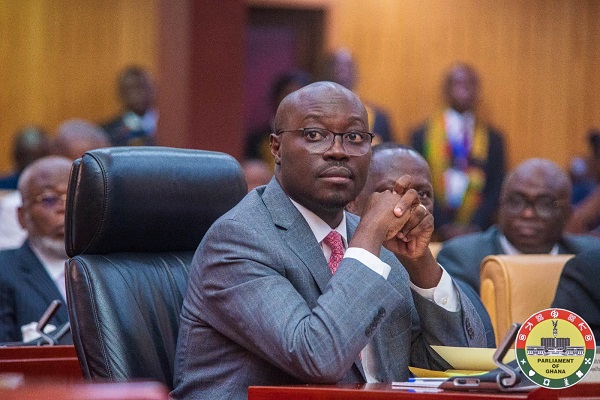The Minority in Parliament has announced that its members will not participate in vetting President Akufo-Addo’s nominee for the position of Deputy Minister for Trade and Industry.
This decision revealed in a press statement on Tuesday, July 2, 2024, is driven by the Caucus’s frustration with the current size of the Akufo-Addo/Bawumia government and its handling of Ghana’s economic challenges.
In the statement, signed by Dr. Cassiel Ato Forson, the Minority Leader, the Caucus expressed deep dissatisfaction with the administration’s performance and the President’s decision to nominate additional ministers despite ongoing severe national issues.
“Members of the Minority Caucus on the Appointments Committee of Parliament will not participate in today’s vetting of the President’s nominee for the post of Deputy Minister for Trade and Industry,” the statement declared.

The Minority criticised the President’s approach to governance, arguing that the continued expansion of the ministerial portfolio reflects a lack of understanding of the economic difficulties faced by Ghanaians. They cited several issues exacerbated by the Akufo-Addo/Bawumia administration’s policies, including: A crippling economic crisis, Food insecurity and Debt default resulting from excessive borrowing Corruption in government Wasteful and reckless expenditures.
“The Caucus is affronted by the already large size of the Akufo-Addo/Bawumia government and its poor economic performance,” the statement said.

The Minority also emphasised that they cannot support the nomination at this time due to the administration’s failure to address these pressing problems.
“We are again unable to support this nomination by President Akufo-Addo at this time because our country has gone through (and continues to go through) very difficult periods, including crippling economic crisis, food insecurity, debt default as a result of excessive borrowing, corruption in government and wasteful and reckless expenditures,” the statement added.






